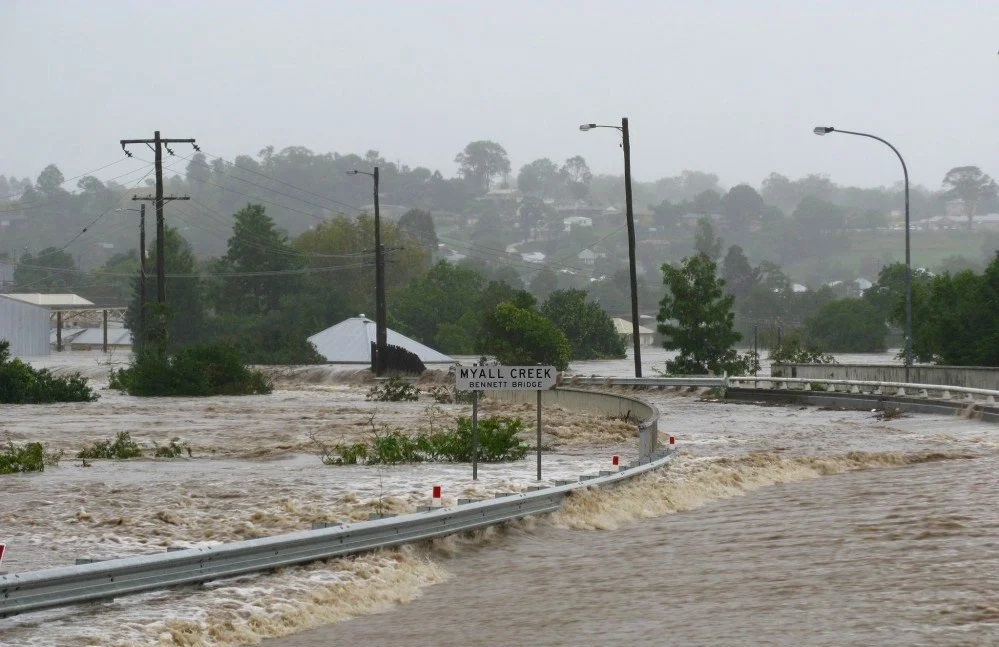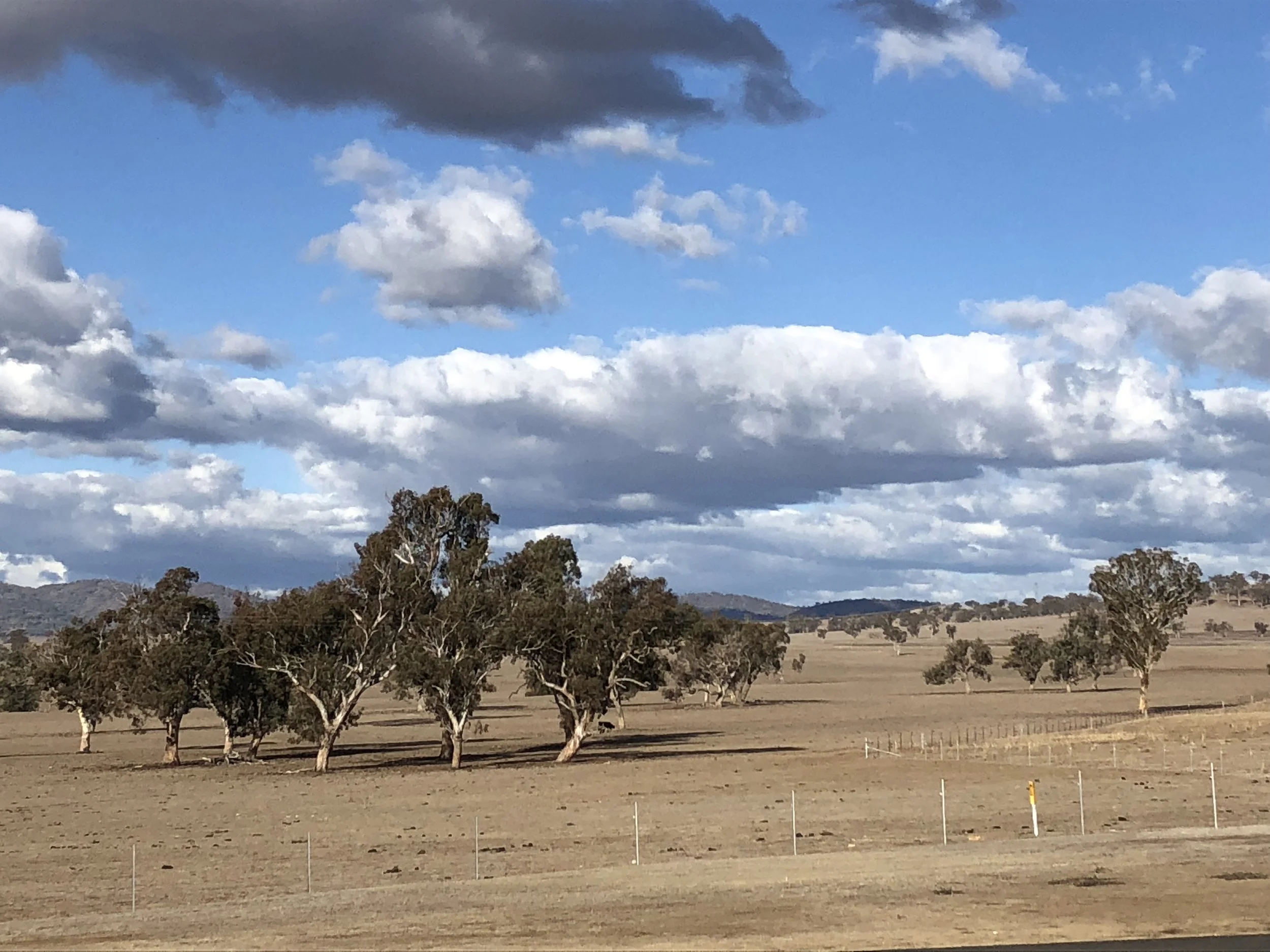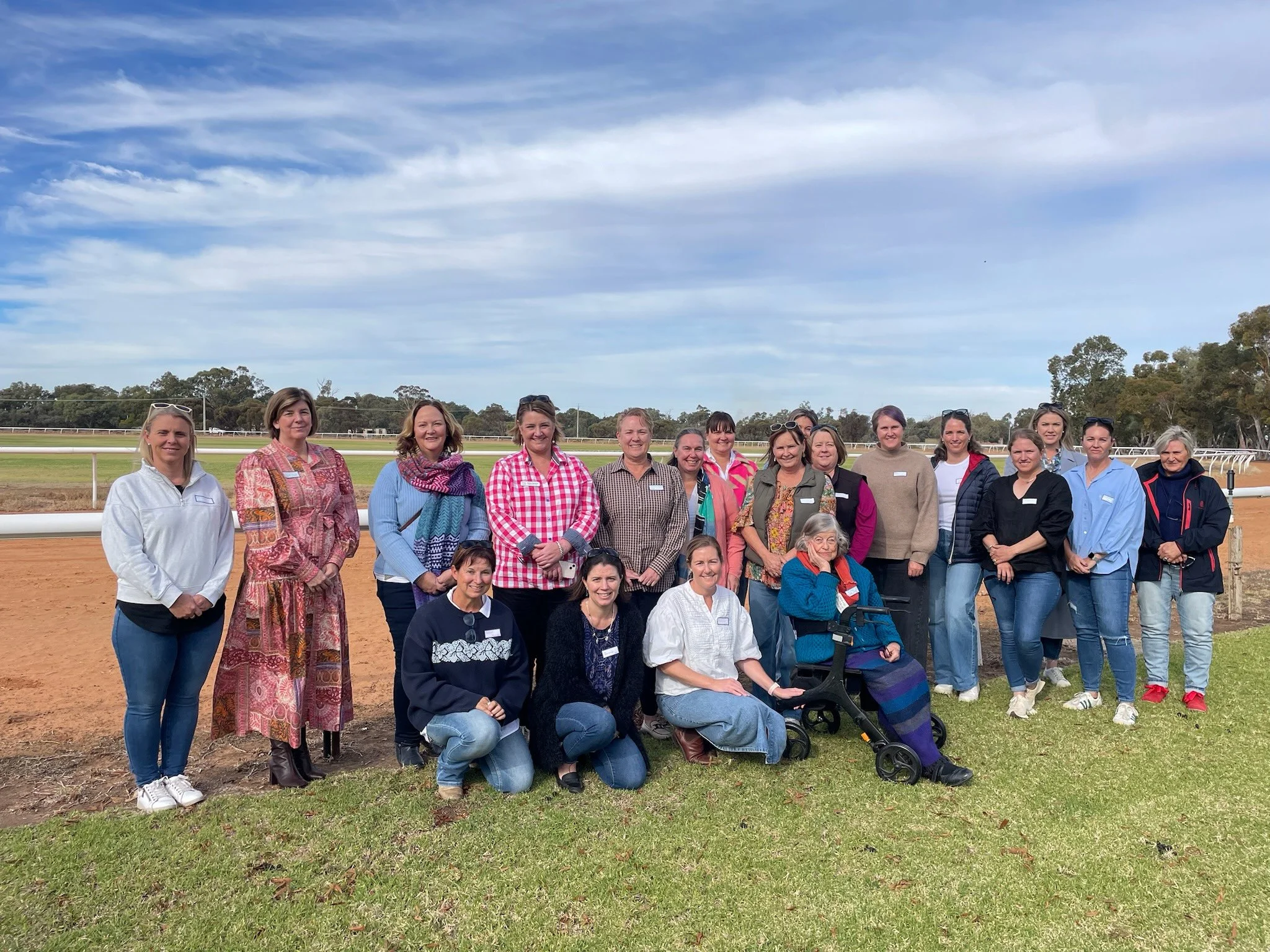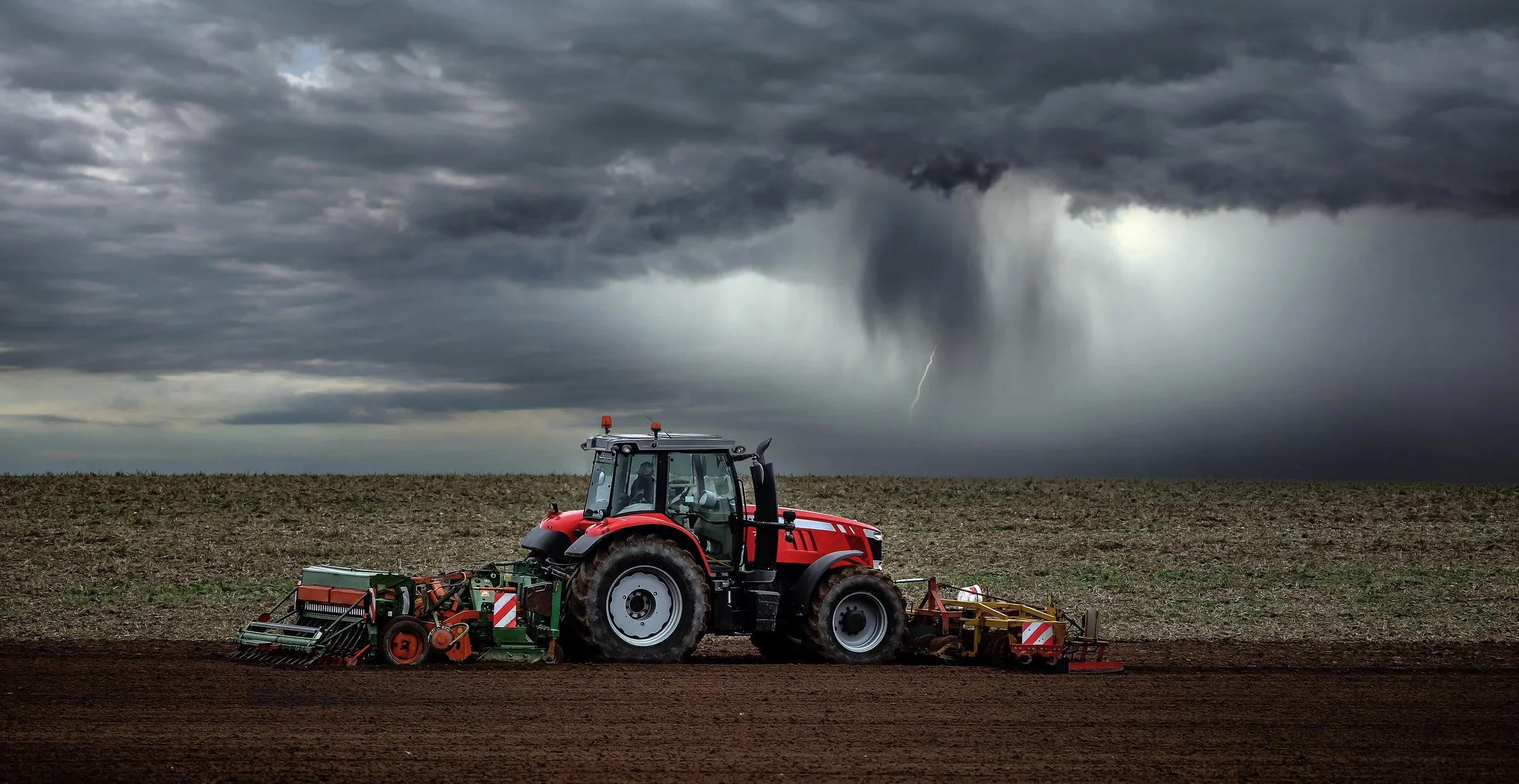It began with a flood,
then a drought
Hello,
Thanks for dropping by.
Little did I understand the impact that the collision of three rivers, torrential rains and the flooding of our little town and district would have on reshaping my future. What started as feeding and caring for 110 people from the local church hall sparked something I didn’t yet understand. At the time, it felt like a simple act of community, but in hindsight, it was the beginning of a whole new purpose.
A purpose to create opportunities for rural, regional and remote people to build stronger community connections and to equip rural people with the knowledge and skills to grow through disasters, not just during the crisis, but in the aftermath too.
We could never have predicted what came next: the worst drought in living memory. There were no playbooks for when two years’ worth of stored feed ran out. We’d heard about ‘trigger points’, but we’d never had to act on them. After four years of drought, came storms that tore open our parched paddocks and then, of course, the pandemic. It was as if the universe had decided to outdo every disaster movie ever made. The pandemic, however, had one strange bonus: it forced me to slow down.
And that’s when I ran out of energy to maintain my mask.
I told myself I was fine, that I was coping, that I had everything under control (but let’s be real, I didn’t). It became exhausting trying to maintain that mask of ‘everything’s ok’. Somewhere along the way, I’d forgotten how to be real, how to be me. In hindsight, it took the crashing weight of these events to knock me out of my armour, to strip away the mask that had become a second skin.
What I’ve learned since is that communities thrive when people gather. It hasn’t been an easy journey, but it's one that’s forged resilience (capability) and now, the past no longer dictates my future. I’ve discovered the joy of adapting, of finding my true north and with it, the freedom to be my authentic self.
That’s how Little Red Tractor and Ladies on the Land Australia (LOLA) were born. It lights me up when people come together to share, connect and grow through lunch, learning & laughs.
About Little Red Tractor
Little Red Tractor is an initiative dedicated to energising and uniting communities across rural, regional and remote Australia through engaging workshops, events and online networks. Founded by Kalen Sowter, the organisation emerged from firsthand experiences with natural disasters and the challenges of rural life, aiming to foster capacity building (resilience), connection and personal wellbeing and growth.
The gatherings bring together people for a mix of lunch, learning, and laughs, because who says personal wellbeing and community building can't be done with a smile and a laugh.
It's a chance to tackle challenges together, swap stories, learn new skills and make connections that last.
Whether you're getting hands on with proactive practices for preparedness and recovery or just having a laugh with mates, Little Red Tractor’s events are all about building strength and wellbeing in a relaxed, supportive space.
From in person gatherings in the local hall to vibrant online communities, these workshops help participants level up their skills, tackle local issues and create networks that make a real difference. Whether you’re learning something new, refreshing what you know, navigating community challenges, or simply enjoying a good meal and great conversation, you’ll leave feeling recharged and ready to thrive, personally and as part of a stronger community.
Led by Kalen Sowter, who’s passionate about ensuring rural communities thrive now and for generations to come.
For lunch, learning & laughs.
So, where did the name
Little Red Tractor come from?
Well, around here, the tractors have always been red. When it came time to choose a name for the business, the decision took an unexpected turn. Putting the question to the youngest voice in the house, my 3 year old with a belief in only red tractors, quickly answered: “Little Red Tractor.”
Simple. Confident. No hesitation.
And just like that, the name was set, a nod to the everyday machinery of rural life and a sweet reminder that big ideas can come from anywhere.





